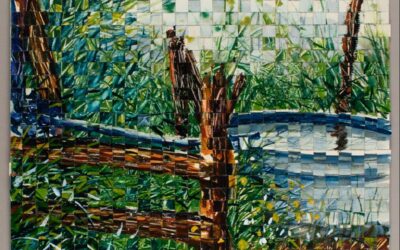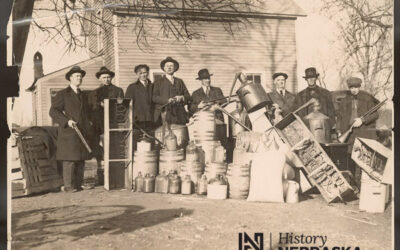Edward Manley, a Chicago educator, was the son of Samuel Manley, one of the five men that composed the faculty of the University of Nebraska when classes first began in the fall of 1871. The father’s health failed, and he soon resigned. The Manley family lived in Lincoln only a few years when the boy, Edward, was less than twelve years of age. He subsequently reminisced about these early years in a paper read January 25, 1932, before the Chicago Literary Club.
Manley recalled, “The town was new. Enthusiastic citizens claimed for it a population of 2,500. The prairie, undefiled by fences, came right up to the town. . . . Between the town and Salt Creek was an alkaline lowland, with steep banks, that was the Salt Basin. Into it nearby sulphur springs discharged their overflow. These springs, probably shaped centuries before by Indians, were lined with beautiful green fleece-like moss, that floated lazily in the depths. The water was palatable to many, who brought their jugs and filled them at the springs.
“There was flow enough from one well to supply a swimming pool. A group of aquatic enthusiasts excavated a pit of the proper dimensions, put in a wooden floor, and walled the sides with 16-foot boards placed vertically. These reached high enough to afford a screen. They also built a rude board cabin a platform’s width distant from the pool and used it for a dressing room. A more than academic knowledge of bathing suits had not yet penetrated the continent so far as this. Hence the need of the board wall about the pool. With a four-inch stream flowing constantly through, there was no need to pay attention to leakage.
“For those not fortunate enough to be included in the group that had financed the pool Salt Creek near by afforded some facilities for swimming. Unlike ‘Sweet Afton’ this stream needed no admonition to flow gently. For the most part it was kicked from behind by the salt springs on its way to the flattest of rivers. In times of flood it specialized in breadth rather than speed. Those who did not mind leeches found rest and comfort in its placid waters. In the winter it offered skating, marred it is true by blowholes or airholes, toward any one of which a beginner was drawn by some fatal attraction.”



